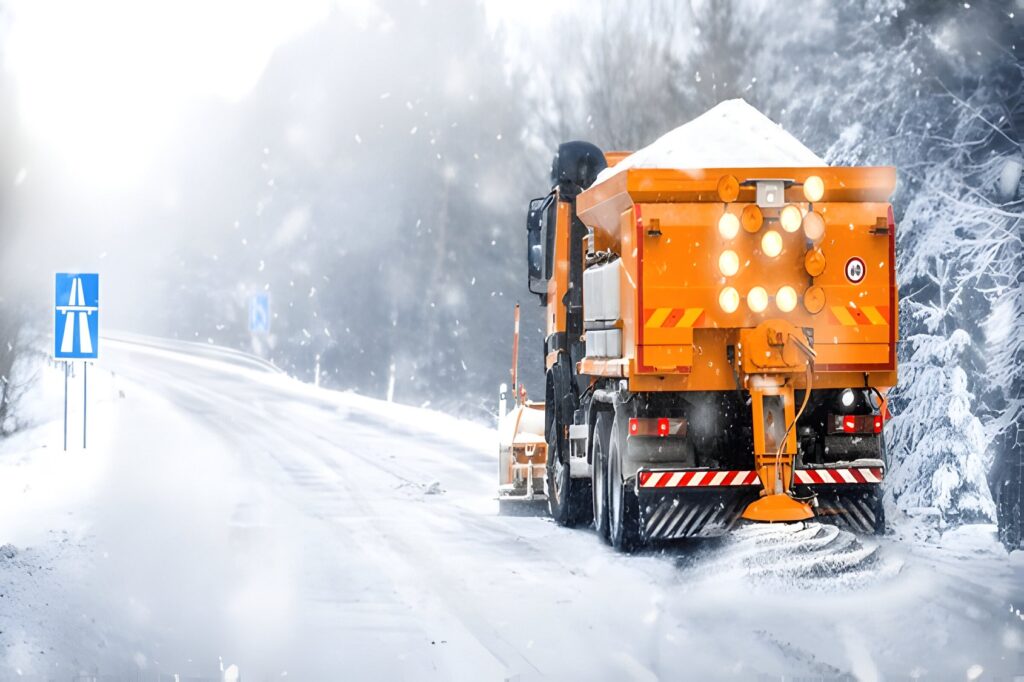How Severe Weather Impacts Auto Shipments

When transporting a vehicle, weather can play a crucial role in the success or failure of the shipment. A perfect weather condition means seamless shipping and delivery, while adverse weather can cause numerous difficulties.
So, why are weather conditions important for your car shipment? Read on as US Car-Go Freight explains the impact of weather on auto shipment and how to prepare for it.
Weather Conditions and Their Impacts on Auto Shipment
Different weather conditions have varying effects on auto transport, and being aware of these can help you prepare better.
Heavy Rain and Flooding
Rain is one of the most common weather challenges in auto transport. While carriers are designed to handle rain, severe downpours can lead to delays due to reduced visibility and slippery roads. Flooding can cause road closures, making it impossible for carriers to stick to their planned routes, resulting in extended transit times.
Snow and Ice
Snow and ice are particularly challenging for auto transport, especially in northern regions during winter. These conditions can make roads treacherous, increasing the risk of accidents. In extreme cases, carriers may need to postpone shipments to ensure the safety of the vehicle and driver.
High Winds
High winds can be dangerous for open carriers, especially when transporting larger vehicles like trucks or SUVs. Strong blows can make it difficult to maintain carrier control, leading to potential delays or even the need to reroute to avoid hazardous areas.
Hurricanes and Tropical Storms
Hurricanes and tropical storms can be particularly disruptive to auto shipments. These weather events often lead to widespread road closures, evacuations, and delays. In some cases, shipments may be rescheduled entirely until it is safe to proceed.
Weather plays a critical role in auto transport planning. Therefore, auto carrier companies and customers must consider it when scheduling a shipment.
Route Planning
Auto carrier companies often monitor weather forecasts closely to plan the safest and most efficient routes. They choose alternative routes during severe weather to avoid dangerous conditions. This could result in a longer transit time but ensures the safety of your vehicle.
Flexibility in Scheduling
When severe weather is expected, it’s essential to have flexibility in your shipping schedule. While delays are never ideal, they are sometimes unavoidable in the face of extreme weather. Being prepared for possible rescheduling can help manage expectations.
Transparent Communication
Keeping an open line of communication with the auto transport company is crucial, especially when severe weather is a factor. Regular updates can help you stay informed about potential delays or changes in the shipment plan.
Insurance Considerations
Severe weather increases the risk of damage during transit, making insurance a vital part of the auto transport process. Therefore, ensure your vehicle is adequately insured to cover any potential weather-related damages during shipment.
How to Prepare for Weather Challenges When Shipping a Car
Shipping a car involves numerous factors, and one of the most critical is the weather. Here are tips to ensure your vehicle arrives safely despite unpredictable weather.
Check the Weather Forecast
Knowing the weather conditions can help you schedule your booking at the right time. If severe weather is predicted, you may want to adjust your shipping schedule or prepare for possible delays. Also, monitor the weather forecast in the pick-up and drop-off locations to have a better idea of what conditions might affect your shipment.
Choose the Right Type of Carrier
The type of carrier you choose can significantly impact how well your vehicle is protected from the elements. If you are concerned about exposure to rain, snow, or debris, consider opting for an enclosed carrier. Although expensive, this option provides better protection against severe weather than an open carrier.
Prepare Your Vehicle
Clean your vehicle before shipping so you can easily inspect it for any potential damage upon arrival. Remove personal items from the car, as they could shift during transport and cause damage, especially in rough weather. Also ensure the tires are properly inflated, and the battery is fully charged to handle any unexpected delays.
Secure Adequate Insurance
Verify if the auto transport company provides sufficient insurance coverage for your vehicle. You can also purchase additional coverage for your vehicle depending on your insurance preference.
Final Thought
Understanding how severe weather impacts auto shipments is key to ensuring a smooth and safe transport experience. Being aware of these challenges and working closely with your auto transport company, you can better prepare for potential disruptions.
For reliable and weather-conscious auto transport, consider working with professionals like US Car-Go Freight. We prioritize safety and efficiency in all conditions. Contact us today to see how we navigate the complexities of auto shipping, no matter the weather.
Recent Posts.
- How to Avoid Auto Transport ScamsHow to Avoid Auto Transport Scams The Ultimate and Uncompromising… Read more: How to Avoid Auto Transport Scams
- Auto Transport Truckers: The Best and Worst Routes to KnowAuto Transport Truckers: The Best and Worst Routes to Know… Read more: Auto Transport Truckers: The Best and Worst Routes to Know
- What is a Auto Transport Bill of Lading and Why It MattersWhat is a Auto Transport Bill of Lading and Why… Read more: What is a Auto Transport Bill of Lading and Why It Matters



